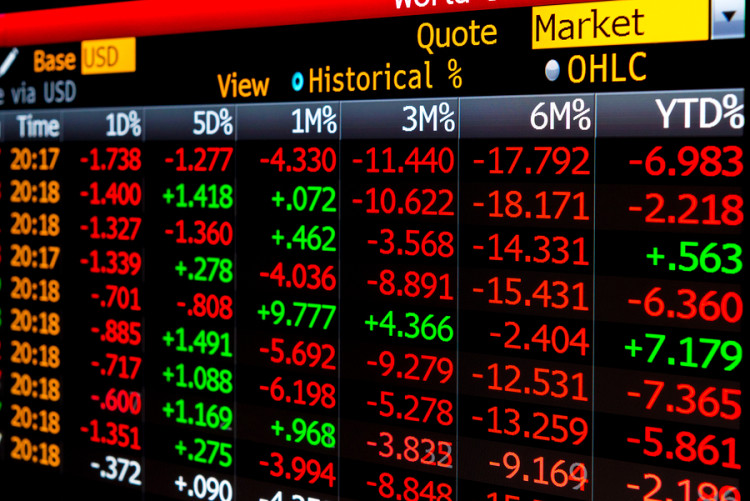Dollar Retreat Deepens While Oil Slump Hits Asian Energy Stocks

©2015 Bloomberg News
NXOGLE6K50XY
(Bloomberg) — The greenback encountered more headwinds, while energy companies drove Asian stocks lower as investors mulled oil’s slump to a two-month low and the prospect of more divergence in global central bank policy.
The euro made some inroads, climbing for a second day as the dollar lost some steam ahead of speeches from Federal Reserve officials including Chair Janet Yellen. Australia’s currency jumped after data showed a steeper-than-expected increase in employment and the jobless rate fell. With U.S. crude lingering around $43 a barrel amid ongoing concern over a glut in supply, Asian commodity shares headed for their longest run of losses since the end of September. Treasuries advanced, while Australian bonds tumbled.
“Divergence in monetary policy is creating an even choppier investment environment,” Michael McCarthy, chief market strategist in Sydney at CMC Markets Plc, said by phone. “The futures market is indicating that it’s more likely than not that we’ll see the Fed raise rates in December. Expectations of further easing in China are high because there’s been a demonstrated responsiveness among policy makers to the weakening economy.”
With U.S. data signaling the world’s biggest economy may be strong enough to withstand higher rates, investors are monitoring figures from overseas to gauge whether there are any threats to American growth that may still concern the Fed. Reports this week provided a mixed picture on China, which sparked a global market rout last quarter as anxiety over its economic slowdown spurred the U.S. central bank to stand pat on borrowing costs. Both South Korea and the Philippines are expected to keep rates on hold Thursday.
Stocks
About 120 more stocks fell as rose on the MSCI Asia Pacific Index, which was little changed as of 10:07 a.m. in Tokyo after rallying last session. Raw materials producers in the gauge slipped for a sixth straight day, their longest slump since Sept. 29.
Amid the retreat in commodities stocks, Australia’s S&P/ASX 200 Index reversed Wednesday’s advance, sliding 0.2 percent, while the Topix index in Tokyo lost 0.3 percent. New Zealand’s S&P/NZX 50 Index added 0.3 percent and the Kospi index fluctuated in Seoul.
Standard & Poor’s 500 Index futures rose 0.1 percent after the U.S. benchmark ended Wednesday down 0.3 percent, slipping for the fifth time in six days amid the selloff in crude and declines among retailers.
“There’s a lot of news behind us and not a lot of potentially market-moving news ahead of us in the short term,” said James Gaul, a portfolio manager at Boston Advisors LLC, which oversees $2.8 billion. “It seems like it’s going to be quiet because there aren’t a whole lot of obvious catalysts right now.”
Currencies
The Bloomberg Dollar Spot Index, a gauge of the greenback against 10 major peers, lost 0.2 percent following Wednesday’s 0.3 percent drop, the steepest since Oct. 30.
Last week’s better-than-expected U.S. payrolls report spurred an uptick in bets that the Fed will boost rates in December, fueling gains in the dollar and sending the spot index to its highest level in a decade. The greenback has given up some of that strength this week because a lot of the rate-hike speculation is already prices in, said Koji Fukaya, the Tokyo- based chief executive officer at FPG Securities Co.
“For the dollar to rise further from here, yields have to rise – the dollar and yields move in parallel, so it’s difficult for the dollar to advance further if yields aren’t rising,” Fukaya said. “Emerging and commodities currencies have more scope to react to positive news as they have priced in negative news. These currencies have been sold off, making some breathing space to recover when there are positive news.”
The Thai baht climbed 0.2 percent with New Zealand’s dollar, while the Malaysian ringgit strengthened a second day, adding 0.3 percent to 4.3550 per dollar.
The Aussie climbed as much as 1.2 percent versus the dollar after the data, which showed employers added the most jobs since March 2012 and the jobless rate unexpectedly slipped below 6 percent.
Bonds
Australian government debt retreated after the jobs report, with yields on 10-year notes jumping 11 basis points to 2.98 percent following two days of declines. Three-year rates climbed by 13 basis points, or 0.13 percentage point, to be on track for their steepest increase since January last year.
Treasury markets resumed following a U.S. bond-market holiday, with yields on debt due in a decade declining one basis point to 2.33 percent.
Commodities
West Texas Intermediate crude traded at $43.16 a barrel after sinking 2.9 percent last session to $42.93 a barrel, its lowest settlement since Aug. 27.
U.S. oil inventories probably increased by 1.3 million barrels last week, according to a Bloomberg survey before an Energy Information Administration report due Thursday. That would keep supplies more than 100 million barrels above the five-year seasonal average, exacerbating the anxiety over a global glut.
Most industrial metals resumed losses, with nickel and aluminum down at least 0.6 percent in London and copper declining 0.2 percent.
–With assistance from Chikako Mogi in Tokyo.
To contact the reporters on this story: Emma O’Brien in Wellington at eobrien6@bloomberg.net; Jonathan Burgos in Singapore at jburgos4@bloomberg.net To contact the editors responsible for this story: Emma O’Brien at eobrien6@bloomberg.net John McCluskey







No Comment